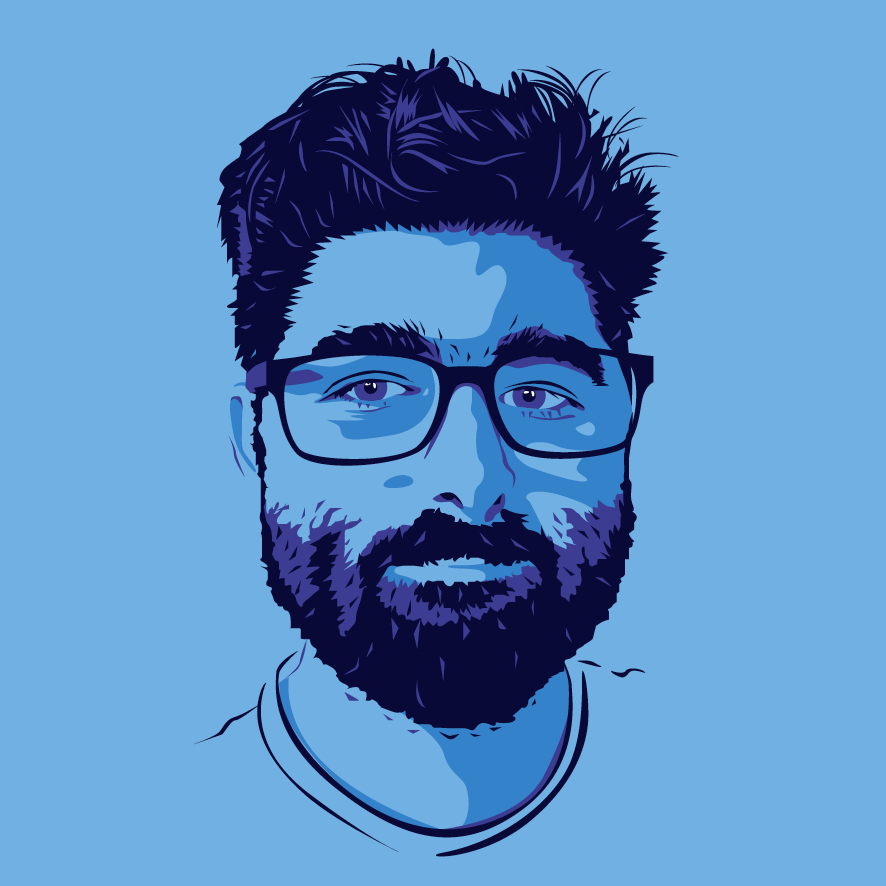From Epic Pinball to Warframe: 25 years of Digital Extremes
Founder James Schmalz discusses the studio's long journey.
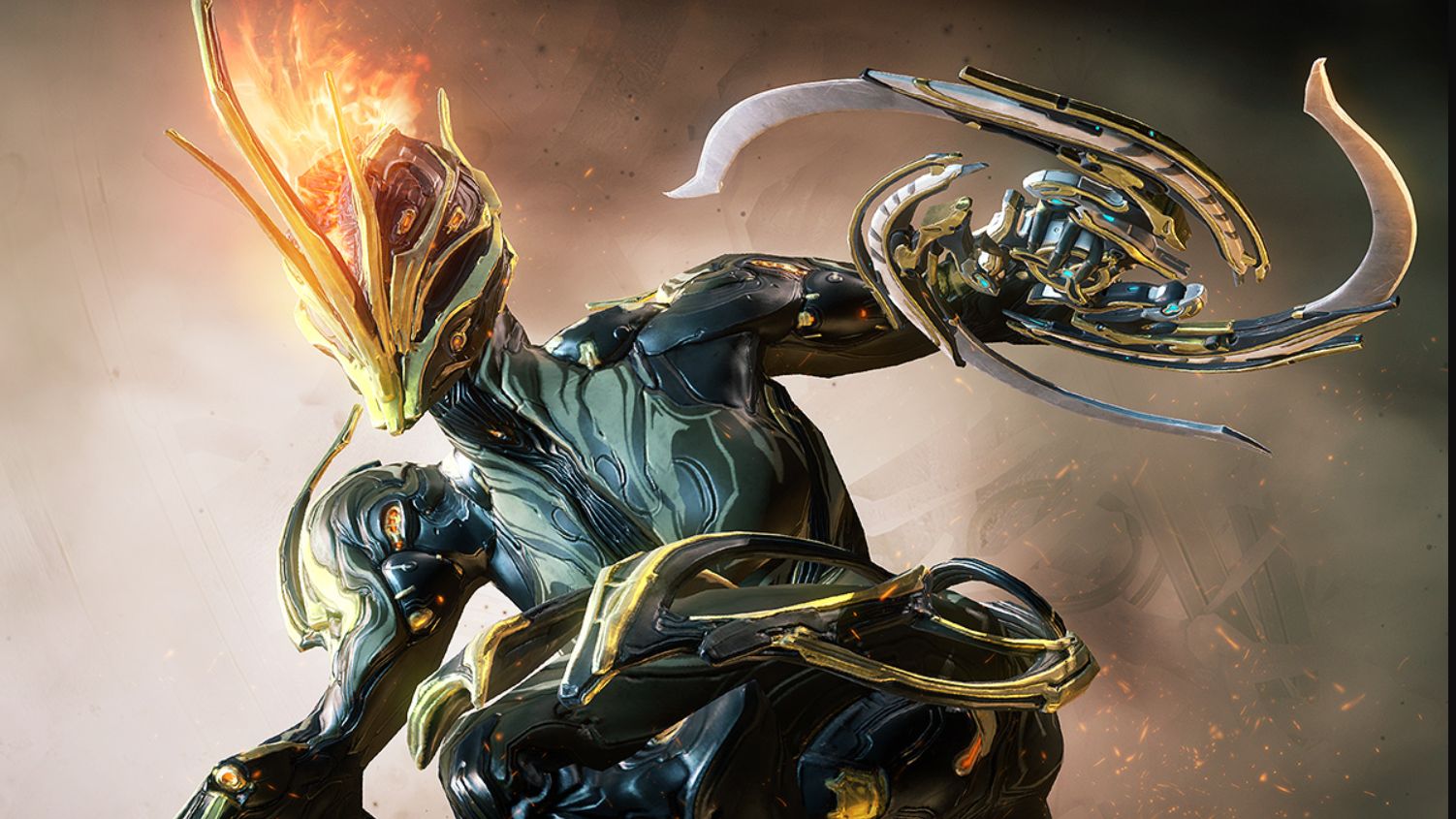
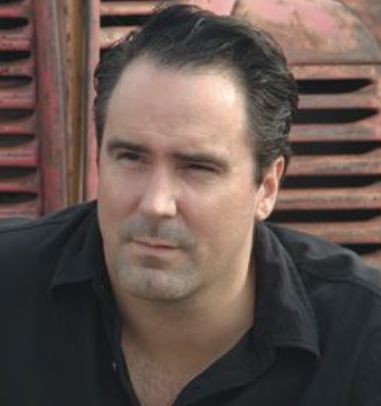
James Schmalz is the founder of Digital Extremes. He has developed and overseen many projects in DE's 25 years, from Epic Pinball through to Warframe today.
Today Digital Extremes is known for its big free-to-play hit shooter, Warframe, but the studio has been around since PC gaming's early days. For 25 years DE has worked on old school classics like Epic Pinball, as well as Unreal, and underrated shooters like The Darkness 2.
Founder James Schmalz started out learning coding tidbits from magazines before working alongside Epic luminaries Tim Sweeney and Mark Rein. DE's story is one of a studio that has fought hard for the opportunity to create its own property in an industry that's often tough on mid-sized independent developers trying to break out. I spoke to Schmalz earlier this week about the studio's story.
PC Gamer: How did you get started developing games?
James Schmalz: I’ve always been interested in games ever since I got an Apple II Plus computer, and during high school I’d make little games. I got into it professionally in university and I found out about shareware. I remember there were a few small games out at the time. I thought it sounded like a great way to get a small game some exposure without trying to get into the retail stores. My first real game was Solar Winds and it was distributed by Epic through the shareware model, and it did really well. A really interesting and good start.
In grade nine was my first exposure to computers, to Apple II Plus computers at the high school, and I was absolutely fascinated by the computers and by all the games of course, and everything you could do with it. It definitely was a passion from the very moment I got my hands on one.
How did you build on that first release?
I was working with Mark Rein and Tim Sweeney back when they were just starting up Epic. Solar Winds, it came out, and it was making pretty decent money, just enough money on a per month basis that I could survive off of that and work on the next game.
Keep up to date with the most important stories and the best deals, as picked by the PC Gamer team.
All the Epic games were incredibly helpful back then. They were learning how to do things and I was learning how to do things. There was a great sharing of information with the other developers they were working with. Massively educational. After Solar Winds I started work on Epic Pinball, and that turned out to be extraordinarily successful.
How did you choose what to make at the time?
Yeah back then it was really nice. Out of naivety, not understanding much, at that time I’m just thinking about what’s going to be fun to make, or what interests me. Solar Winds came out of me really liking the game Star Control and Star Trek: The Next Generation. It was a combination between those two things. It was something that captivated my mind.
You were hoping for financial success but you weren’t really thinking of that because you didn’t know anything about it. When you get ten years on in the industry you’re primarily thinking ‘what’s going to be successful, what’s going to be this or that', and you’re thinking about all these other factors rather than just doing what you want to do.
How has the industry changed over the last 25 years?
Yeah it’s vastly expanded of course. There’s so much information out there. Back then before the internet to find out any information on how to program or how this was programmed, that was programmed, 3D graphics, you’re basically starting from scratch on everything. You’ve got little snippets from magazines that you might have read.
Anyone that’s really old school might remember Nibble magazine for the Apple II Plus where they had little bits of code, tiny little games written across two pages of the magazine that you could type in and see how it works. It was really difficult to get information that you needed. Or the tools. There was no tools back in the day. For a developer starting out it’s such a different experience, there’s very little reference material.
What I like about these days is back then one person could do it all, or two people could do it all. I love the fact that we’ve definitely got to a point where you see one or two or three person indie teams doing amazing stuff. So it’s changed so much, yet in some ways there’s lots of elements that are the same as it was 25 years ago.
What did you move on to after Epic Pinball?
I did Solar Winds, then Epic Pinball, then we worked on Extreme Pinball. Then that was the time when I was getting into 3D programming. Then Epic and us, we collaborated for many years until that product became Unreal, then we all worked on Unreal Tournament together. That was about a six, seven year period when we did all that.
What was it like working on the transition to 3D games with Epic?
I went to university for mechanical engineering. We did a lot of complex math there. When I saw Wolfenstein 3D come out and Doom come out, I was so fascinated by 3D programming so I jumped into it myself. It was some really interesting stuff, basically starting from scratch on 3D programming, down to rasterising polygons on the screen.
I was absolutely fascinated by it and I learned a lot, but my skills in 3D programming—my skills in programming in general were never that great—it was such slow going for me. When Tim Sweeney started making his version of the Unreal Engine he would just blaze past me so fast. It was interesting considering how such an amazing programmer he was, he was my only point of reference really for a programmer to compare yourself to in those days.
I basically stopped programming because he blazed past me so quickly, then I focused on design and art. I got my taste of 3D programming myself but then I had the great experience to be able to work with him as he was pioneering all the stuff he pioneered back then.
Is there anything you miss about those days? Anything that has improved or changed in the following years?
It’s amazing to think of what we all accomplished back then with such small teams, but it was such high stress. There are so many plusses and minuses. At my age now it would be hard to go back and redo that kind of thing.
It was some fantastic memories with the team, working extremely long work weeks to get Unreal out, but then you suffer through all that and you accomplish something that’s really quite extraordinary. The results were amazing and I definitely wouldn’t go back and change anything, but it was tough. There’s definitely a lot of tough times in there.
It was all so focused and we all pushed each other. We all worked crazy hours, not because anyone said so, just because somebody else was, so now you feel like you should. We knew we were creating something pretty special. The majority of that team turned out to be so monumentally successful, and you have to consider that it’s at least in part by going through those experiences and realising what it takes to make an incredible game, and the sacrifices at times that you have to do to make that happen. No doubt that those experiences changed all our lives, and certainly changed who we are to a certain degree I would think.
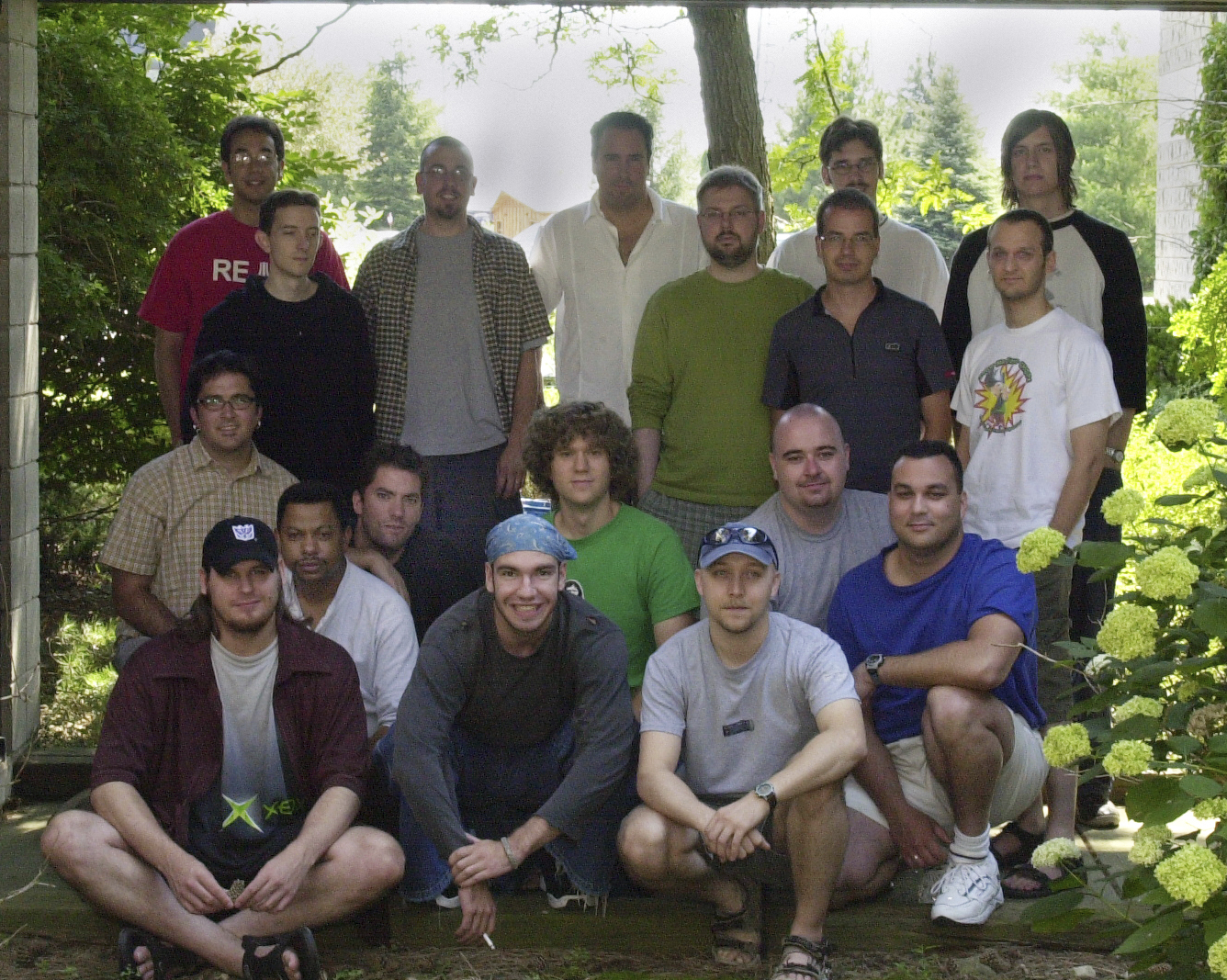
How did Digital Extremes move on after the Unreal era?
We were really looking to build our own IP. Back up in Canada right up after that, right after Unreal Championship came out, we were working on an idea called Dark Sector. It’s interesting because if you look at the original trailer for that it’s very much what Warframe is now. We had the seeds of kind of what Warframe is, way back then.
We wanted it to be an MMO-type online game, and we were shopping it around and we just weren’t getting any traction on it, so we ended up doing some work for hire stuff. Amazing stuff, some horrible stuff. We just did that for years to pay the bills and we got into this—not necessarily a rut—but a case where games are getting bigger and bigger and you do some work for hire work and you need a bigger team, the team needs to be twice as big, so over the years the staff at DE grew to one hundred and then two hundred, just because the games we were doing for work for hire required that.
It was a bit of a tricky problem because we still wanted to do Dark Sector and do our own products, and have this situation where we’re hopefully two teams where one is a work for hire and it’s the bread and butter, and we’re also trying to create our own IP. It was a very, very difficult position to be in for sure, because as an independent developer you can have a project cancelled at any time, and we certainly had that happen a few times. It was certainly devastating and at various times we were so close to bankruptcy, but we finally pulled it through and managed to move on.
How did Warframe eventually come about?
When we had the opportunity to do Warframe five years ago, almost six years ago, I told Steve and the team ‘just make whatever you want, whatever you’re most excited about’ and they narrowed in on the original ideas for what Dark Sector was, the original Dark Sector, iterated on that and adapted it for free-to-play, and adapted it for modern times right now. It was clearly the right decision for sure.
We had a short period of time to get Warframe out originally. It was so well received by the fans, and I know [the team] pays a lot of attention to what they feel about the game. They want to add multiple huge innovations to the game each year, and you can see that in some of the big announcements and updates we have, where they really try to push the game in a different direction to get the fans re-excited about the future, and keep the team really interested in it too. Working five years on a game that might not change at all is not exciting, but when they ahve these huge updates that really change the direction of where they game is going to go it excites the fans and the development team as well to keep things fresh in everyone’s mind. Everyone has to be passionate about it on an ongoing basis, not just the fans, but the development team. If they lose their passion then it’s going to show up in the updates not being as exciting and passionate.
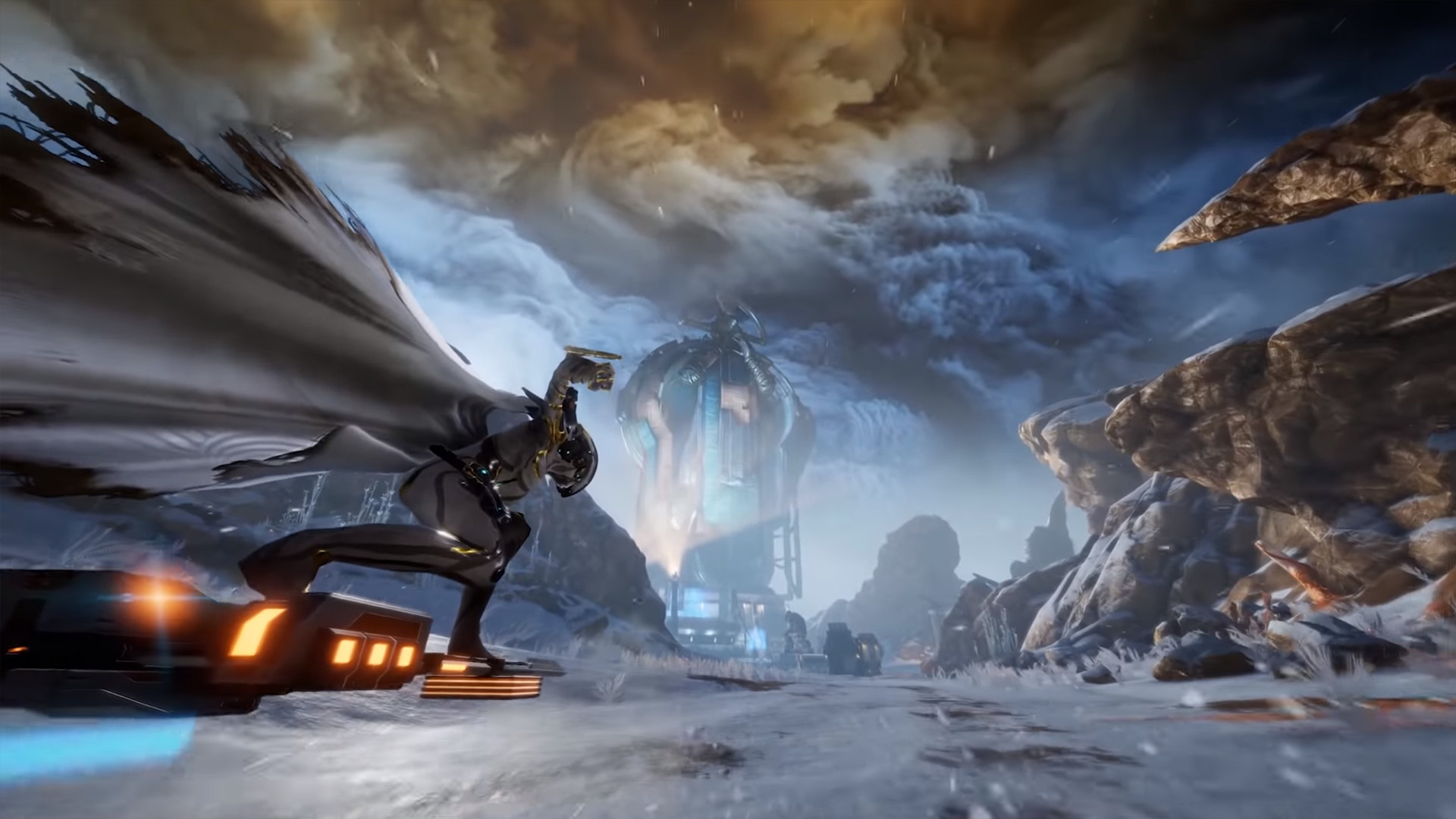
Did the free-to-play launch feel like a big risk at the time?
It was a huge risk. Probably one of the biggest risks we’ve ever taken. At that time World of Tanks had come out and there were a few games that we heard were doing well. As an independent developer we’d do a retail game and it would come out and the money would stop. It would sell and within months it would be gone and you’d have to move onto something new.
One of the things as an independent developer that sounded amazing, if you could make it work, as risky as it is, is that with a free-to-play online game you’ve got revenue coming in potentially all the time. Even if it’s a small amount of revenue it’s still seven days a week, 365 days a year. As an independent developer, having that kind of cash flow is everything. It reduces the chance of those issues I was talking about in the past when you get a project cancelled or finished and you don’t have anything lined up. Then you have 300 people that you need to still employ. It’s horribly stressful and risky, and so we figured even if Warframe was small and did marginally well at least we’d have this ongoing product that could support a certain number of staff at the company.
Does it feel as though player attitudes to free-to-play have shifted over the years?
I hope so, I think so to a certain degree. Games like Fortnite have really helped and I think certainly Warframe has helped because it has got quite a large audience. The key has been to treat your players fairly and try to build a great community. We love the fact that we’re dealing directly with the customers, directly with the players. Everything is about making them happy, making it feel like it’s a fair proposition that we’re giving them. I think it’s slowly starting to change, the perception of free-to-play in our industry, but surprisingly for me not as fast as I thought it would. I thought a lot more people would be making free to play games at this point. It might accelerate now—Fortnite has had a huge impact on the perception of that and they’ve done it so well.
Is Warframe the studio's main focus at the moment?
Yeah, we love Warframe and it continues to do amazingly well. We’re growing our studio to support any number of staff that we might need to grow Warframe as quickly as possible. We just had the Switch version come out and it’s doing incredibly well, so the growth is still there.
Everything we do at DE pretty much goes back into supporting Warframe and growing Warframe as much as possible, really delivering to the community the content they want to see as quickly as they want to see it. It’s such a huge focus. We’ve looked externally at other players, we just launched Survived By. We had a fun bullet hell type game which everyone should check out. We’re doing that kind of thing, but within DE our focus is all on Warframe and making it as great as possible.
Part of the UK team, Tom was with PC Gamer at the very beginning of the website's launch—first as a news writer, and then as online editor until his departure in 2020. His specialties are strategy games, action RPGs, hack ‘n slash games, digital card games… basically anything that he can fit on a hard drive. His final boss form is Deckard Cain.
